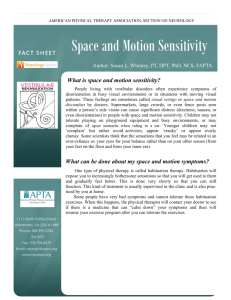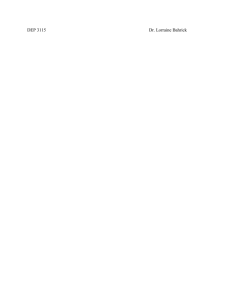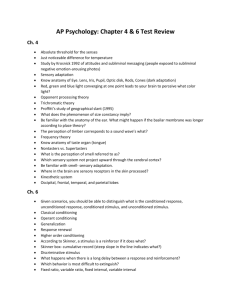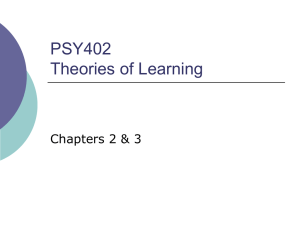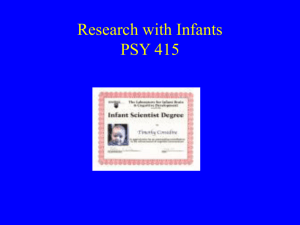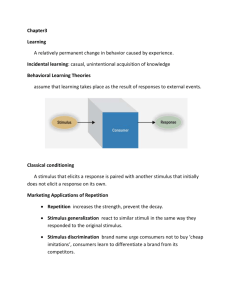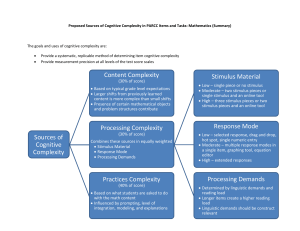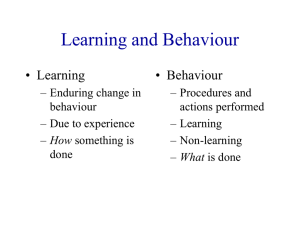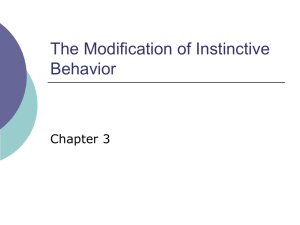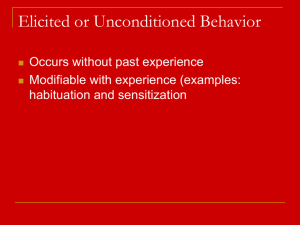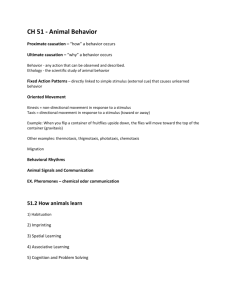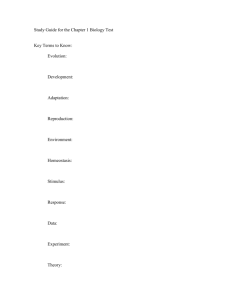LEARNING: A RELATIVELY PERMANENT BEHAVIOR CHANGE
advertisement
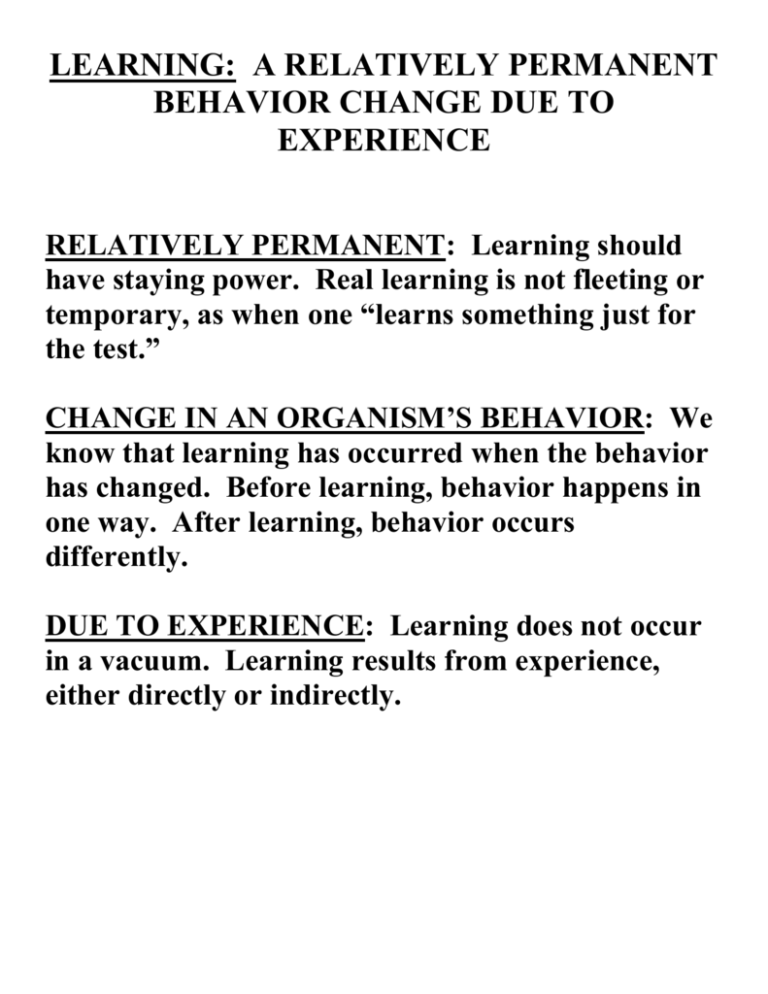
LEARNING: A RELATIVELY PERMANENT BEHAVIOR CHANGE DUE TO EXPERIENCE RELATIVELY PERMANENT: Learning should have staying power. Real learning is not fleeting or temporary, as when one “learns something just for the test.” CHANGE IN AN ORGANISM’S BEHAVIOR: We know that learning has occurred when the behavior has changed. Before learning, behavior happens in one way. After learning, behavior occurs differently. DUE TO EXPERIENCE: Learning does not occur in a vacuum. Learning results from experience, either directly or indirectly. HABITUATION V. ADAPTATION HABITUATION: With habituation, we eventually lose our sensitivity to an oft-repeated stimulus. Once habituation occurs, we will have reduced sensitivity to that stimulus, even if the stimulus changes. ADAPTATION: Adaptation occurs when we get used to a continuous, unchanging stimulus. As long as the stimulus is unchanging, we will eventually not notice it at all. When the stimulus changes, however, our sensitivity to the stimulus will go back to original levels. ADAPTATION IS RECOVERABLE. HABITUATION IS NOT
